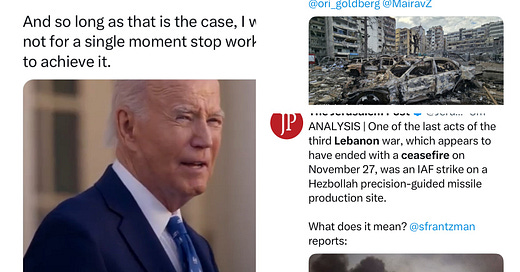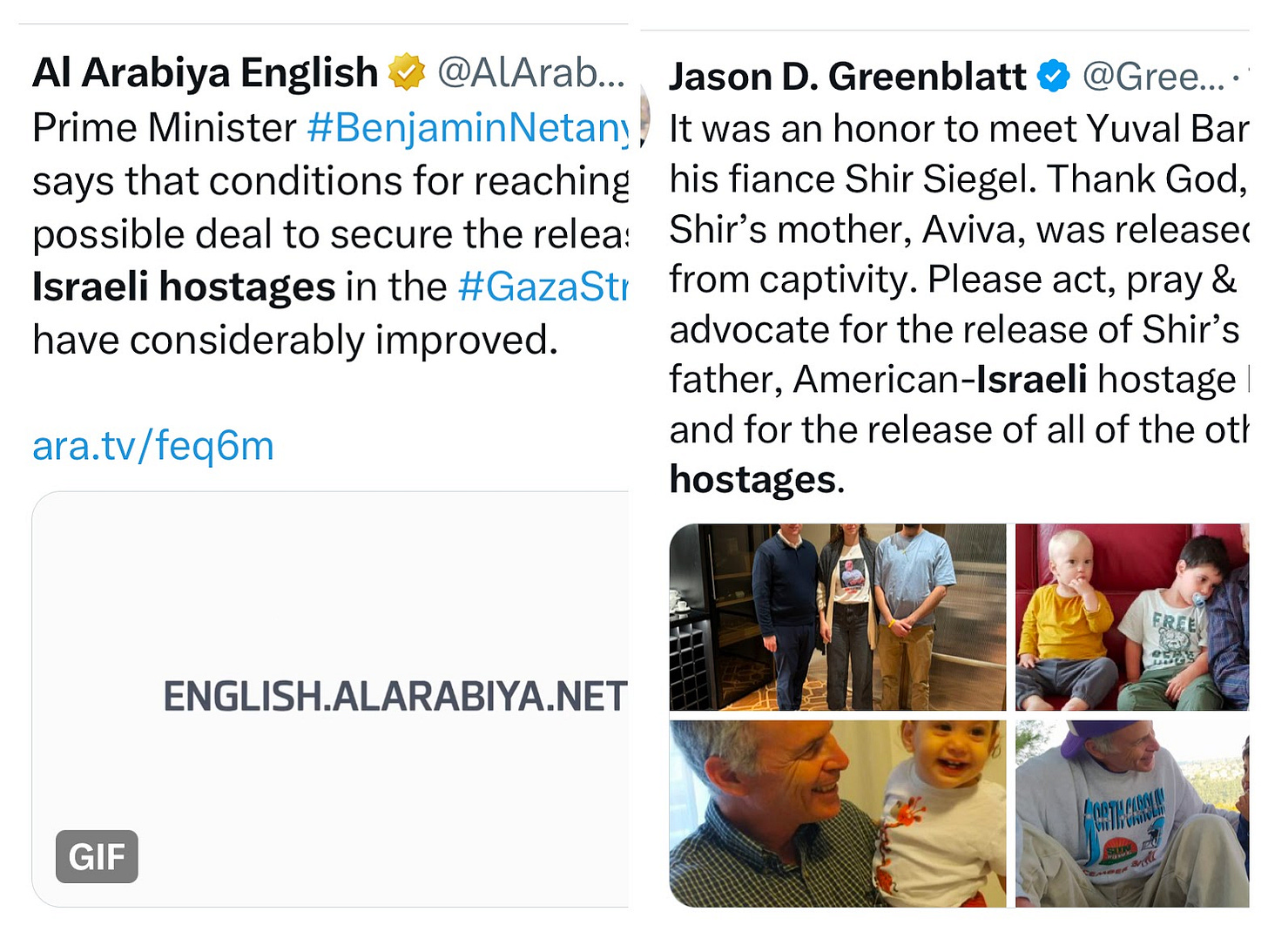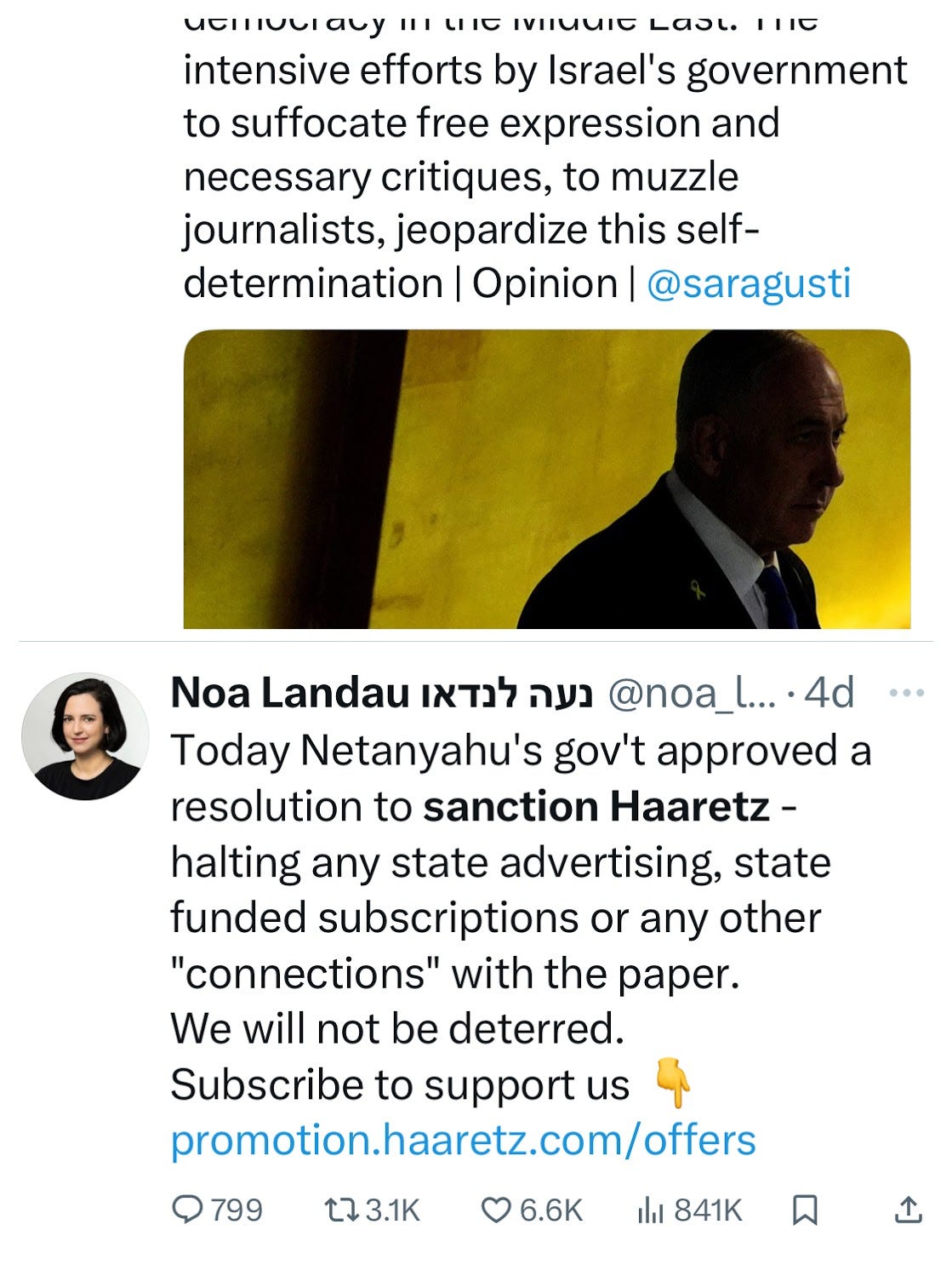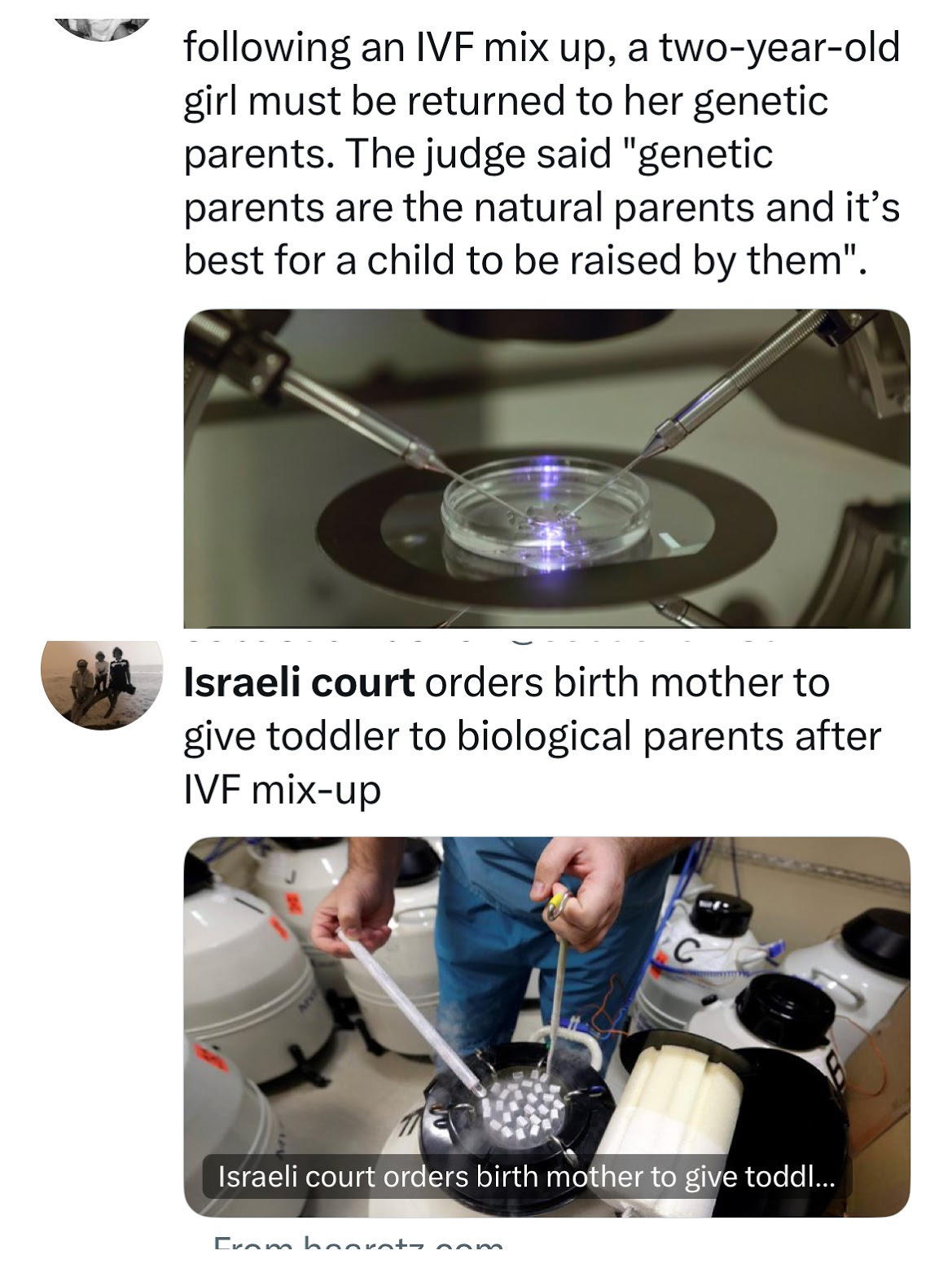Israel at War - Day 420
1. Israel and Lebanon Sign Agreement to End the War
After months of negotiations, led by American special envoy, Amos Hochstein, Israel, and Lebanon signed an agreement on Wednesday night. The two parties to the agreement are Lebanon and Israel, although the aggressor was not the Lebanese army but rather Hizbollah, a radical, Iranian-supported, Islamist organization based in Lebanon. According to the agreement, Hizbollah forces and operators are forbidden from going south of a defined line. If they do, Israel will have the right to attack them, based on approval from the US and France. Some of the Lebanese villages that hosted Hizbollah operators will stay empty and their residents will not be able to live there for the time being.
Reminder: Hizbollah launched a violent attack on Israel with rockets and missiles on October 8th, 2023, shortly after the Hamas attack on October 7th. Hamas expected solidarity, it should have been a coordinated move by Hamas from the south and Hizbollah from the north, according to Israel, managed by Iran. Israel evacuated tens of thousands of Israelis from their homes in the north, entire communities were displaced to hotels and other places in the center of Israel. A couple of months ago Israel launched a ground operation in southern Lebanon, to distance Hizbollah forces and operators from the border in the north, to search for ammunition and attack tunnels, while Israel's air force continued to attack targets in the Lebanese capital Beirut. President Biden pushed for a cease-fire and nominated a special envoy to lead the negotiations. All the mayors of the northern communities in Israel, which were targets of massive rocket and missile fire over the last 14 months, opposed the agreement, claiming that they would not be able to encourage their people to go back to their homes under these circumstances.
The agreement was approved by the cabinet, with only one minister voting against it, Itamar Ben-Gvir. But some in Israel don’t approve the deal. The US and France are guarantors of the agreement. Some analysts claimed that Israel conditioned the participation of France that Francev announce that they would not arrest PM Netanyahu if he traveled to France according to the arrest warrant that was issued by the International Criminal Court (ICC). The deal will be evaluated over the next two months, and if kept by both sides, it will continue to be observed.
2. Ceasefire/Hostage Deal Negotiations Resume with New Players
Following the ceasefire agreement between Israel and Hizbollah, there are those, including hostages’ families, senior security officials and political leaders, who believe that now is an opportune time to reach a ceasefire/hostage deal with Hamas. In a phone call earlier this week, President Biden told PM Netanyahu that following the ceasefire agreement in Lebanon, they should now focus on reaching a ceasefire deal in Gaza and the release of the hostages. Also, earlier this week, hostages’ family members held a sit-in outside Netanyahu's chamber at the Knesset, demanding progress on a deal. One demonstrator said: "Just as you reached a quick agreement in Lebanon, bring a deal to return the hostages!"
Following Qatar’s announcement earlier this month that it is withdrawing from its role in brokering a ceasefire/hostage deal, new players have stepped up, primarily Turkey and Egypt. An Egyptian delegation arrived in Israel earlier this week to discuss the details of a new deal. The Israeli Shin Bet chief traveled to Turkey earlier this week to meet with his Turkish counterpart. Senior Israeli security officials believe that a deal can now be secured, Arab mediators and senior US officials think that Netanyahu may stall the negotiations until president elect Donald Trump assumes the presidency on January 20th, 2025. Analysts claim that Netanyahu believes that Trump is less likely to put pressure on Israel by withholding military aid.
3. Direct Threat to Israeli Freedom of the Press Intensifies
The Israeli government approved two decisions that directly threaten the free press in Israel. The first decision was to impose governmental sanctions on the Haaretz newspaper by forbidding government agencies from publishing their advertisements in the paper and stopping paid subscriptions of government employees. The other decision was to push a law to privatize the public broadcaster in Israel. The latter decision has already been presented as a new bill to the Knesset and passed the preliminary vote.
When the minister of communication, Shlomo Karhi took office two years ago, he stated that he wanted to destroy the public broadcaster, Kan. He claimed that it is not diverse enough in terms of including right-wing opinions. For two years Karhi has tried to introduce bills, executive orders and other mechanisms to weaken the public broadcaster. His real goal is to allow private companies, which happen to be supporters of him and his party, Likud. His supporters will benefit from the budgets that are currently allocated to the public broadcaster.
Regarding the sanctions on Haaretz, the current government doesn’t like the critical approach of Haaretz and is looking for ways to weaken it. The opportunity presented itself when Haaretz publisher and owner, Amos Schocken, spoke at a conference in London UK, and stated that the Israeli government is an "apartheid regime" and referred to Palestinian militants as "freedom fighters”. Schocken later apologized and said that he did not phrase his ideas correctly. In addition, journalists at Haaretz unequivocally denounced his claims.
However, the government used this as a hook to introduce its plan to delegitimize Haaretz and impose economic sanctions.
Haaretz and the Union of Journalists in Israel are considering appealing to the Supreme Court, since the decision is not legal, because public money is not a means to punish those who don’t align with government ideology.
These two decisions are part of a master plan to weaken and threaten the free press in Israel, orchestrated by PM Netanyahu and his government. And even if those moves by the government will not pass, the damage has already been done. There is growing sentiment among the supporters of the government to mobilize against the free press and against criticizing the government.
4. Family Court Rules in IVF Mix-Up
A family court in central Israel ruled earlier this week, in a legal battle between genetic parents and birth parents. The cause was a mix-up at a private IVF clinic. The court had to rule as to who are the child’s legal parents. The court ordered the girl, now two years old, be handed over from the birth parents to the custody of her genetic parents.
The legal saga started in 2022 when prenatal tests showed no genetic connection between the fetus and the woman who carried it and her partner. It was later discovered that the IVF private clinic where both couples were treated, transferred an embryo belonging to the genetic parents to the womb of the woman who carried and eventually gave birth to the baby girl. Following the discovery, the woman who gave birth to the girl, named Sophia, and her partner fought a long legal battle to keep her, despite not being genetically related to her.
The presiding family court judge based his decision on the recommendation of a prominent child psychologist, stipulating that the genetic parents should be granted custody. This is despite a recommendation written by two social workers recommending she remain with the birth parents. The judge said that the transfer of custody should be implemented “with an organized plan” under the supervision of the Tel Aviv Social Welfare Department
5. Chabad Rabbi in UAE Slain, Suspects Detained
Rabbi Zvi Kogan, Chabad emissary to the United Arab Emirates (UAE) was murdered last weekend after he was kidnapped from Dubai. Rabbi Kogan’s body was later flown to Israel, for burial in Jerusalem.
Three men of Uzbek origin were detained by the Turkish police and deported to the UAE, at the request of the UAE government. Media reported that the UAE is likely to request a death sentence, should the three suspects be found guilty.
According to media outlets, Israel was not involved in the arrest operation, the background of which remains unclear for now. Israeli sources claim that the murder of the Chabad rabbi was an antisemitic act of terror. Jared Kushner, the Jewish son-in-law of U.S. President-elect Donald Trump, along with his wife donated a million dollars to the Chabad house in the United Arab Emirates, following Kogan's murder









